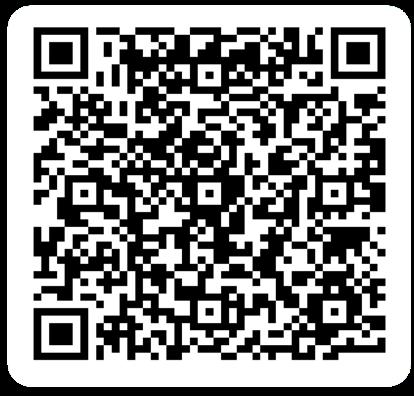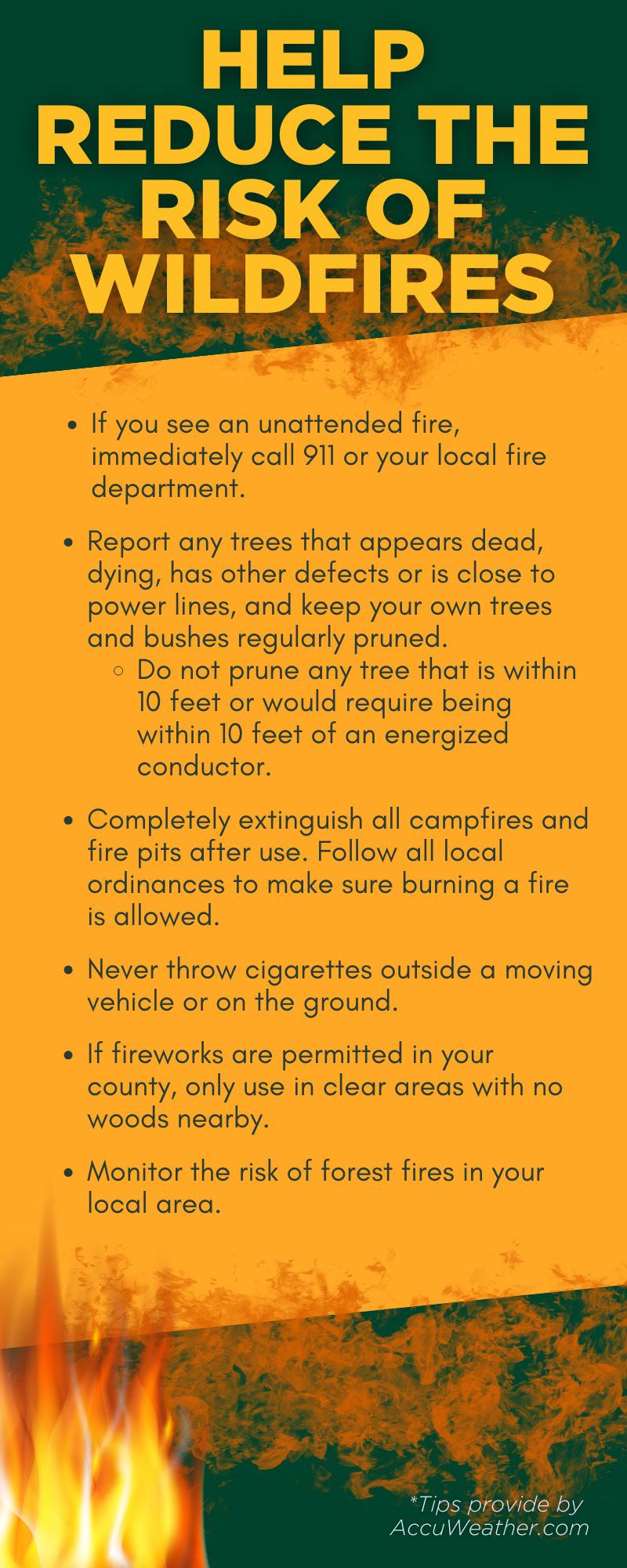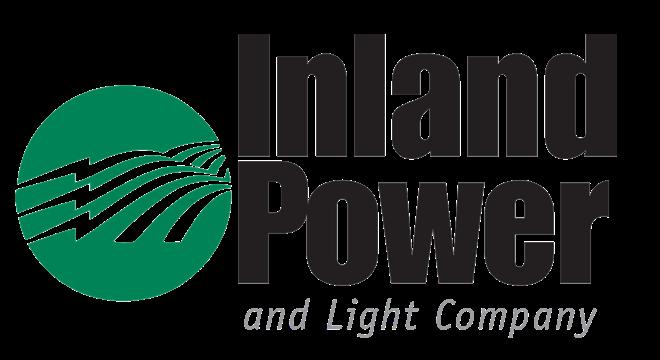








Wildfireseason in recent years has become a growing challenge across our region. In January 2024, Washington Governor, Jay Inslee proclaimed the month of May - Wildfire Awareness Month. This focused awareness provides an additional opportunity to discuss and learn safety precautions we can all participate in throughout wildfire season.
Across our region, utilities continue to take preventable measures to combat threats through wildfire mitigation plans. These plans include vegetation management and strategic tree pruning and removal to keep lines clear to improve public safety and the security of the grid. Inland Power also closely monitors our service territory in moderate to high-risk wildfire areas. We will place these areas on non-reclose or “fire safety mode” in our system when necessary.
What is fire safety mode?
Fire safety mode is an alternative way of operating our electrical distribution system where we prioritize system security and public safety higher over normal operations resulting in a higher incidence of service disruptions.
Normally, when a foreign object such as a tree limb makes contact with our power lines, we have devices which detect a short circuit condition, interrupt power momentarily and then attempt to automatically restore power. If the foreign object has cleared out of the way, power remains online with only a brief service disruption. When operating in fire safety mode, this automatic restoral of power functionality is disabled (non-reclose) in areas with elevated wildfire risk. This means that any service disruptions that would have normally been a momentary blink are instead sustained and require a crew to manually inspect and restore.
Fire safety mode is presently planned to be activated on June 1, 2024; however, this could be adjusted based on weather conditions. Once activated, fire safety mode will remain in effect throughout the dry season and will be deactivated as burn bans are lifted and cool weather returns.
How can I know if I live in an area of elevated wildfire risk?
Areas with forested lands and moderate to high amounts of human activity are generally
associated with elevated wildfire risk. These are predominantly focused in the central and northern portions of our service territory and areas that are near the Little Spokane River natural area outside of city limits.
What can I do to prepare?
If you have a tree on your property that is dead, dying or uprooting that you believe is at risk of falling into overhead power lines, please contact our office to arrange a visit with one of our vegetation management specialists who will evaluate the tree and schedule it for removal if it meets the criteria. Keeping vegetation on your property trimmed up and removing excess fuel sources near buildings such as brush piles and debris can help establish a defensible space boundary around your home to mitigate combustion and assist firefighters with defending your home in the event of wildfire.
Consult with local land management authorities for guidance on wildfire risk mitigation. Spokane County residents can visit the Spokane County Conservation District website at spokanecd.org for more information.
With only a 60-day legislative session this year, it was a mad dash to the finish. In all, lawmakers introduced more than 1,600 bills and sent 382 bills to the governor’s desk for his signature. Additionally, legislators passed the supplemental operating, capital and transportation budgets.
Energy, once again, was a popular topic on the hill. From consumer protections to the Climate Commitment Act, Inland Power was extremely active in advocating for our industry and members. A true understanding of how energy operations work is still lacking in Olympia. For a majority of the session, Inland was on the hill building and strengthening relationships with lawmakers and educating them on energy issues and realities.
NOTABLE ENERGY BILLS THAT PASSED
Solar Consumer Protections – This bill establishes a number of consumer protection measures for residential and commercial solar customers. This legislation aims to protect consumers from certain solar installers who utilize predatorial sales tactics and false promises to convince people to install expensive solar systems on their homes. The bill was initiated by the Department of Commerce and remained an Inland Power priority throughout the legislative session.
Carbon Market Linkage – This legislation was requested by the Department of Ecology and is intended to facilitate linkage of Washington’s carbon market under the Climate Commitment Act (CCA) with the California-Quebec carbon markets. This technical and complex bill will become obsolete if the initiative to repeal the Climate Commitment Act is passed in November, which would be positive for Inland Power and its members.
NOTABLE ENERGY BILLS THAT DID NOT PASS
Nuclear Energy Manufacturing – This bill would have created a 10-year preferential B&O tax rate of 0.25 percent for businesses involved in retailing, wholesaling, manufacturing and processing nuclear fuel and assemblies.
Low Income Energy Assistance – This bill would have clarified that small utilities can administer a single low-income program rather than multiple programs to minimize administrative costs and maximize the funding small utilities can make available to assist customers. Despite the failure of the bill, Inland Power is moving forward with its own energy assistance program.
Energy Efficient Loans – This bill would have established an Electric Utility Energy Efficiency Capitalization Grant Program under the Department of Commerce for electric utilities to provide residential loan options that could be used to create energy efficiency projects for low-income and moderate-income households. The program would have been voluntary. Despite the failure of this bill, Inland Power is moving forward with its own energy efficiency loan program.
When the session began in January, the big question was how the legislature would react to the six initiatives filed with the legislature. This was the first time this many initiatives had been filed with the legislature at the same time. In the final week of session, the legislature passed three of the initiatives and punted the other three to voters.
The initiatives below were passed by the legislature and do not require the governor’s signature. They will take effect 90 days after the legislative session ends the first week of June
Initiative 2111 - prohibits state or local jurisdictions from enacting a personal income tax.
Initiative 2081 - provides parents with a right to review educational materials, receive certain notifications, and opt out of sexual health education.

Initiative 2113 - changes the state’s vehicular pursuit law to allow an officer to engage in a pursuit if there is reasonable suspicion to believe the person has violated the law.
The legislature did not act on the following three initiatives that Inland Power strongly supports. These initiatives did not receive public hearings during session. They will automatically be placed on the general ballot in November for the voters to decide their fate. Initiative 2117 – Passing this initiative would repeal the Climate Commitment Act (the state’s cap and tax program).
Initiative 2124 – Passing this initiative would allow employees to opt out of the state long-term care program/payroll tax).
Initiative 2109 – Passing this initiative would repeal the capital gains tax.
The 2024 Supplemental Operating Budget spends $1.1 billion to maintain existing programs and an additional $1 billion to fund new policy expenditures. The supplemental operating budget does not include any new tax increases.
The 2024 Supplemental Capital Budget allocates $1.3 billion in total funds, with $130.6 million from debt limit bonds and $1.2 billion from other resources including $688.4 million in Climate Commitment Act accounts and $307.5 million from the Common School Construction Fund. Several of the appropriations are contingent on voters rejecting Initiative 2117 (repeal of the Climate Commitment Act). The budget also does not appropriate revenue generated from the capital gains tax beyond November 2024.
The 2024 Supplemental Transportation Budget spends a total of $14.6 billion, including $340 million from Climate Commitment Accounts, which are contingent on voters rejecting Initiative 2117. Funds were predominantly spent on projects already scheduled to receive funding during the 2023-2025 biennium. This spending reflects a 0.8 percent decrease in traditional transportation revenues from what was originally forecasted for 2023-2025.
Now that the legislative session is over, Inland Power is working hard during the interim to continue educating lawmakers and staff and researching legislative topics to bring forward for the 2025 legislative session.
While the board and staff at Inland Power remain committed to furthering our cause in Olympia, we need all hands on deck. Inland Power’s grassroots program offers members an opportunity to advocate for rural Washington and Idaho. By signing up to be part of the Grassroots Action Team, you will receive email updates and alerts regarding how you can advocate on issues impacting Inland Power and your energy resources. For more information visit inlandpower.com/grassroots-action
Let’s work together to help keep utility rates affordable and protect the power supply of the Pacific Northwest.

Scan the QR code to sign up!



May marks Electrical Safety Month, which is the perfect time to check your home to ensure it’s safe from any electrical hazards. Simple checks of electrical outlets and cords, and battery testing of smoke and carbon monoxide alarms are quick ways to help safeguard your home.
Here are just a few dos and don’ts to consider when inspecting your home for electrical hazards:
Electrical Outlets

DO: Use GFCI outlets in rooms with water sources.

DON’T: Overload outlets with too many devices.


DO: Test smoke and carbon monoxide alarms every month.
DON’T: Disable smoke and carbon monoxide alarms.


DO: Check electrical cords for damage before use.
DON’T: Use extension cords as permanent solutions.







